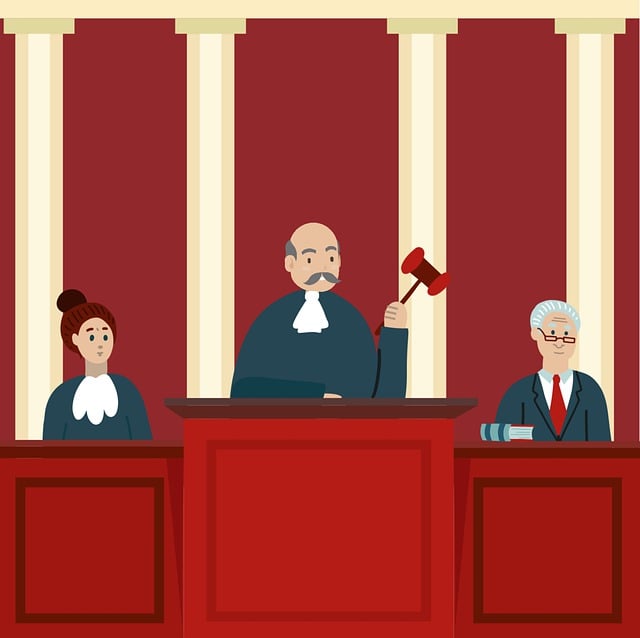Psychological injury, a hidden trauma, is a legitimate legal harm occurring in diverse scenarios. Specialized psychological injury lawyers play a crucial role in identifying and quantifying this complex impact, going beyond emotional distress to include conditions like depression, anxiety, PTSD, and cognitive impairments. These experts guide clients towards justice and compensation for emotional harm by gathering evidence from medical records, witness statements, and mental health professional testimony. Case studies illustrate the real-life effects of traumatic events on individuals' well-being, effectively demonstrating the extent of psychological harm.
“In the realm of legal advocacy, psychologists harm lawyers play a pivotal role in seeking justice for their clients. This article explores how legal professionals navigate the intricate process of proving psychological injury in court. We delve into the defining characteristics and recognition of such harm, highlighting the crucial role of expert witnesses.
Furthermore, it examines strategic approaches and presents compelling evidence through real-world case studies, offering valuable insights for both lawyers and those seeking redress for psychological injuries.”
- Understanding Psychological Injury: Defining and Recognizing Harm
- The Role of Legal Experts: Strategies for Proving Psychological Damage
- Presenting Compelling Evidence: Methods and Case Studies
Understanding Psychological Injury: Defining and Recognizing Harm

Psychological injury, a profound and often invisible trauma, is a legitimate form of harm that can be experienced by individuals in various situations. When it comes to legal battles, especially in cases like commercial disputes, nursing home neglect, or slip and fall incidents, establishing psychological injury as a result requires careful consideration. A psychological injury lawyer plays a pivotal role in recognizing and quantifying this complex damage.
The concept of psychological harm goes beyond mere emotional distress; it encompasses a range of mental states that can significantly impact an individual’s overall well-being. This includes conditions such as depression, anxiety disorders, post-traumatic stress disorder (PTSD), and even cognitive impairments. Recognizing psychological injury in legal contexts demands a nuanced understanding of these conditions, their severity, and the lasting effects they can have on victims’ lives.
The Role of Legal Experts: Strategies for Proving Psychological Damage

Legal experts play a pivotal role in helping clients seek justice and psychological injury lawyer compensation for harm suffered due to another party’s actions. When presenting a case involving psychological damage, these specialists employ strategic approaches to ensure client recovery. They meticulously gather and analyze evidence, including medical reports, therapy notes, and witness statements, to demonstrate the extent of their client’s emotional suffering.
By examining the context surrounding the incident, such as the terms within employment contracts or the nature of the relationship between parties, legal experts can uncover nuances that strengthen the case. They may also leverage expert testimony from psychologists or psychiatrists to provide a professional assessment of the client’s psychological injury and its impact on their daily life. This comprehensive approach helps in achieving fair injury compensation and fostering a sense of justice for the harmed individual.
Presenting Compelling Evidence: Methods and Case Studies

A psychological injury lawyer presents compelling evidence by employing various methods to demonstrate the mental anguish suffered by their clients. This includes expert witness testimony from psychiatrists and psychologists, who can assess and validate the extent of psychological harm through detailed evaluations and diagnoses. Additionally, they use medical records, therapy notes, and other documentation to substantiate the client’s struggle with conditions like depression, anxiety, or PTSD stemming from traumatic events such as a truck accident or employment-related stressors in cases involving partnership disagreements.
Case studies often play a pivotal role, showcasing real-life examples of successful recoveries. For instance, a truck accident lawyer might highlight a client who, after being involved in a severe collision, endured not only physical injuries but also experienced severe anxiety and flashbacks, significantly impacting their quality of life. In employment contracts or partnership disagreements, psychological injury lawyers may present evidence of emotional distress caused by wrongful termination, harassment, or breach of fiduciary duty, illustrating the profound effects on an individual’s mental well-being and professional trajectory.
Psychological injury lawyers play a vital role in navigating complex legal cases involving emotional distress. By understanding the nuances of defining and recognizing harm, these experts employ strategic methods to prove psychological damage. Through compelling evidence presentation, they ensure that clients receive justice for their suffering. Recognizing the impact of such injuries is essential, and legal professionals equipped with these skills help foster a more comprehensive understanding of psychological well-being in legal contexts.






